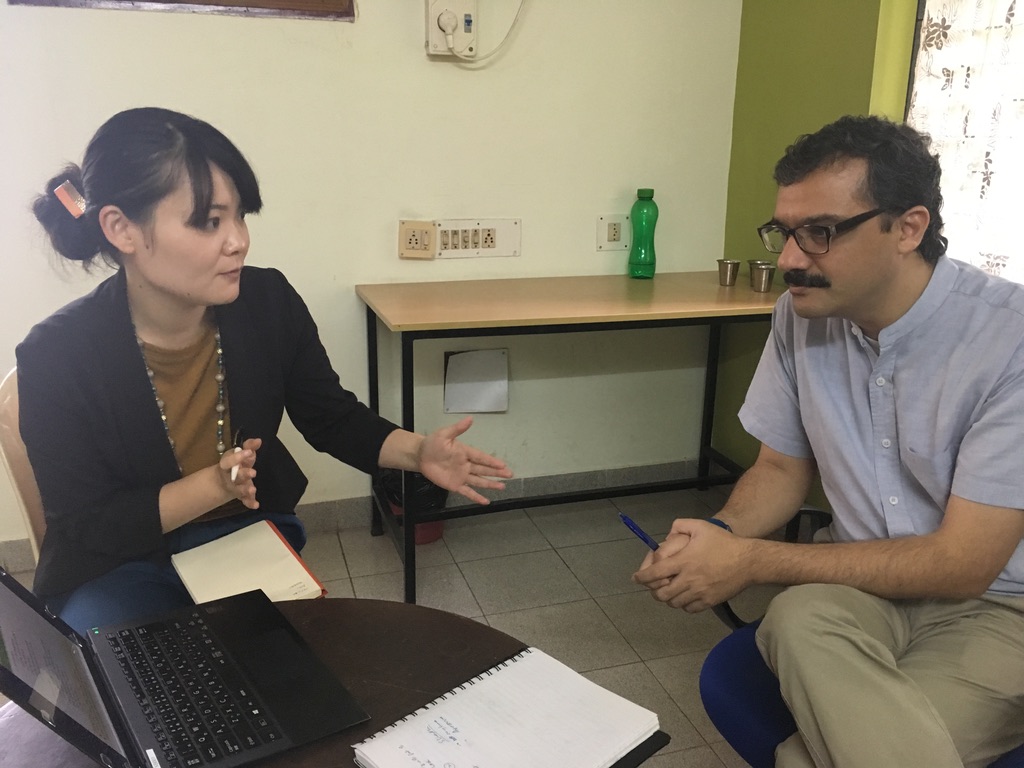
In 2017, Miyo, who works in Triumph, a Japanese human resources company, participated in Cross Fields’ Corporate Volunteering Program (CVP) in India. 4 years later, in 2021, she was appointed Executive Officer of the same company. She says that her experience in CVP allowed her to “let go of perfectionism and conquer her fear of failure.” Rina from Cross Fields, who accompanied Miyo at the time, takes a deeper look into how this experience has led to where she is today.
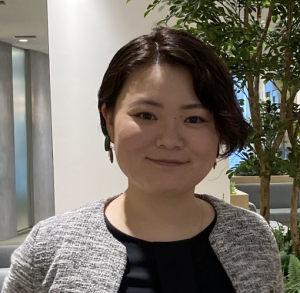
“I was just so afraid of failing”
—It has now been 5 years since your CVP experience, what has changed for you?
Certainly a lot… before I knew it, I was an Executive Officer! Currently, I am in charge of new projects and internal leadership development programs.
When I participated in the corporate volunteering program, it was the timing that I had just been promoted to an acting manager. Back then, I thought to myself, “I don’t know how to approach this, but I do know that I don’t want to fail.” I was so afraid things wouldn’t go well. I felt immense pressure to succeed in supporting the host organization.
It was my time in India that allowed me to overcome that perfectionism. After three months, I learned how to accept myself regardless of my failures.
At V-shesh, I was given the opportunity to challenge myself every day. On my first day, Shashaank, the co-founder of V-shesh, didn’t give me any specific instructions. In fact, he said to me, “Let us know if there is anything we can do to support you”. I was expecting to be assigned with tasks, so I was both surprised and inspired. It was then that I realized, “Here, it’s ok to create my own work.” From then on, I took on every challenge that came my way.
—Having to identify challenges on your own and create the work from scratch, might have been one big difference from your regular work in Japan. But even in that situation, you kept pushing forward tirelessly without any hesitation.
Back then at V-shesh, my main role was to increase the number of companies that would employ people with disabilities. So, I started by making phone calls –just one after another. Surprisingly, I actually managed to set a good number of business meetings. This experience made me realize: if you stop overthinking and just take action, the path will open.
Finding My Authentic Self After Letting Go of My “Emotional Armor”
—I still clearly remember how, before departing to India, you said, “I just want to make sure I don’t fail.” As you continued to challenge yourself, did your perspective on failure start to change?
I definitely experienced a lot of failures during my time abroad. Even if my phone call led to a business meeting, they often didn’t lead to a contract. And even when I tried to explain V-shesh’s mission, it wasn’t easy to get people to resonate with it. However, I didn’t let it break my spirit. In fact, I began to see failures as an exciting opportunity to plan my next steps and take action.
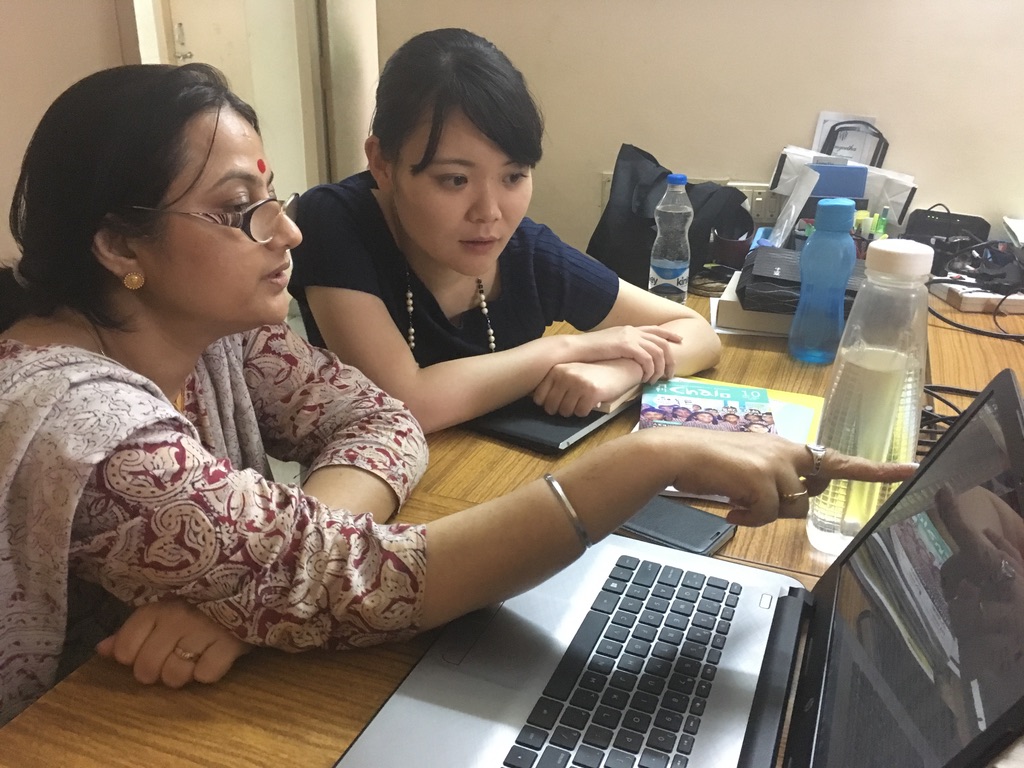
About a month after my departure, I stopped worrying about failing or how others might perceive what I said. Instead, I was able to express my true feelings to the people around me. This wouldn’t have been possible without the support of the V-shesh members who accepted me full heartedly.
Then, on my last day, Shashaank asked me, “You seem so bright and lively now – but do you think you can stay this way once you return to Japan?” I immediately knew my answer was: “Yes, I can.”
In India, the experience of being accepted for my most authentic self, lead to build my confidence. Realizing that I was allowed to make mistakes taught me to forgive my imperfections. That was why I knew I would be able to stay strong even after returning to Japan.
Even today, I will sometimes revisit Shashaank’s question and ask myself: “Am I still being true to myself? Am I worrying too much about what others think?”

So, when I first returned to Japan, I was surprised that the younger employees reminded me of my old self. They seemed to be protecting themselves, tightly wrapped in armor, driven by the mindset of “I can’t make mistakes…I have to do everything right.”
Seeing this inspired my motivation to spread what I learned about the joys of working as your authentic self. I wanted to tell them, “It’s okay to fail when you’re trying something new. There’s nothing to be afraid of.”
This is why I encourage my team members to actively taking on challenges, and when something doesn’t go well, we think of the solutions together.
To me, failure is “the best bait” for developing individual leadership. At the same time, I believe that repeating avoidable mistakes does not lead to growth. To avoid that, we run “failure preparedness drills,” where we reflect on past cases and work together to ensure all precautionary measures are being taken.
Rethinking Leadership and Organization –My Findings in India
—Has your view of leadership changed through your experience?
Before the program, I used to think of a “leader” as just a position – as someone who worked under the manager. However, throughout my days in India, I learned that a “manager” is a role that ensures that the organization runs smoothly, while a “leader” is more about a way of being –something that anyone can become.
The more I took initiative and involved the people around me in my actions, I suddenly realized, “Wait, this is what leadership actually looks like.” This feeling hasn’t changed, and I still believe that anyone can become a leader.
My experience in India also gave me a new perspective on how an organization should work.
At V-shesh and other organizations supporting employment for people with disabilities, the first thing they considered was: “How can we bring out the best in each individual? ” All roles and positions were created based on people, not the other way around.
This was a huge surprise to me. In most organizations, the usual approach is to hire people based on their fit to the position. But here, it was about designing the role to fit the person.
It made me realize that creating an environment where everyone can thrive, not just fit in, will lead to a better working environment for each individual. When people can work in ways that utilize their strengths and individuality, the organization as a whole becomes stronger.
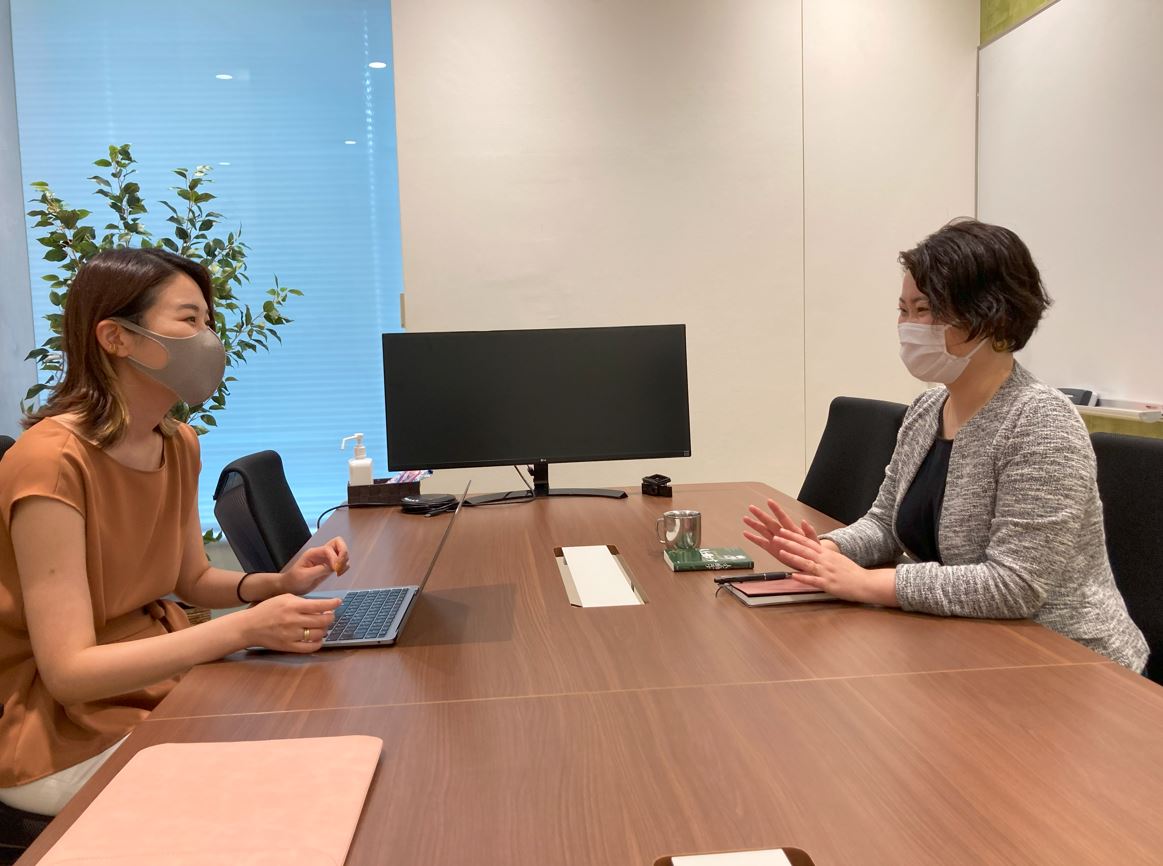
At the same time, this program also taught me that the path to “a better society” would be long and challenging.
V-shesh provides employment support for people with disabilities in India, but the job market there is very much employer-driven. There is little incentive for companies to go out of their way to hire people with disabilities. In this kind of environment, it takes a lot of time to convince companies why it is still necessary to hire people with disabilities.
Even so, V-shesh kept going -steadily building a network of companies that genuinely empathize with their mission. This made me recognize that, the accumulation of these small changes are what truly moves the society forward.
“A place I can always come home to”
—Finally, if you had to describe CVP in one phrase, what would it be?
“A place I can always come home to.” Even after returning to Japan, the memories of those three months have always stayed in my heart. I found myself going back to those memories, whenever I felt lost.
When the program came to an end, I didn’t feel like it was really over. Of course, I was sad that I would no longer be working with V-shesh. However, for myself, it felt like it was only just the beginning. To this day, I still carry the mindset with me – to keep trying and challenge myself – just like I did during my time in India.
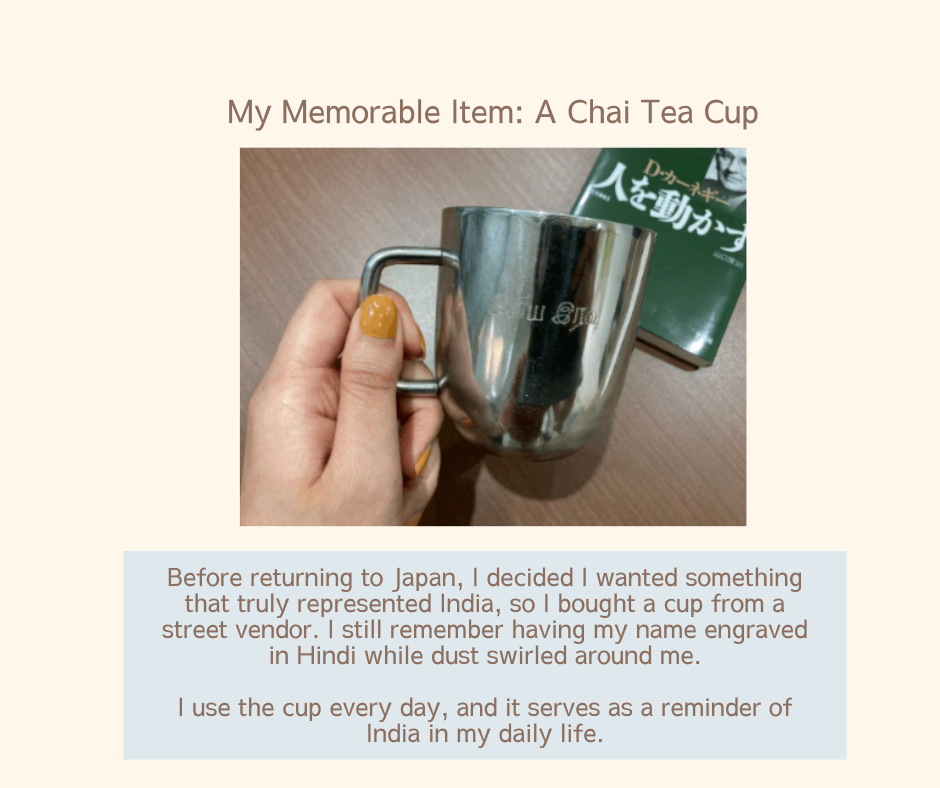
Message from Host Organization
Miyo-san’s background was different from most of the other volunteers as her organisation and she had a background in human resources somewhat similar to V-shesh. Also she was at an early stage of her managerial journey and had many questions (and traces of self doubt).
Miyo-san was quick to understand the work V-shesh does and whole heartedly committed herself to finding ways to generate positive results for the tasks she took on. Slowly but surely she started to settle in the very different work and physical environment and with that there was a distinct change in her sense of being. She seemed to be more comfortable and she started to talk about her doubts as challenges and often shared her ideas of how she may implement those when she gets back to work in Japan. Her optimism as she headed back after the CVP was easily visible and we are so glad that her time with V-shesh was useful. It feels like she carries a little bit of V-shesh with her which is a wonderful feeling for all of us at V-shesh. (Shashaank/V-shesh)
~Interested in hosting volunteers? ~
Thank you for reading this article! If your organization is interested in hosting volunteers or activities of Cross Fields, please contact us from this page.